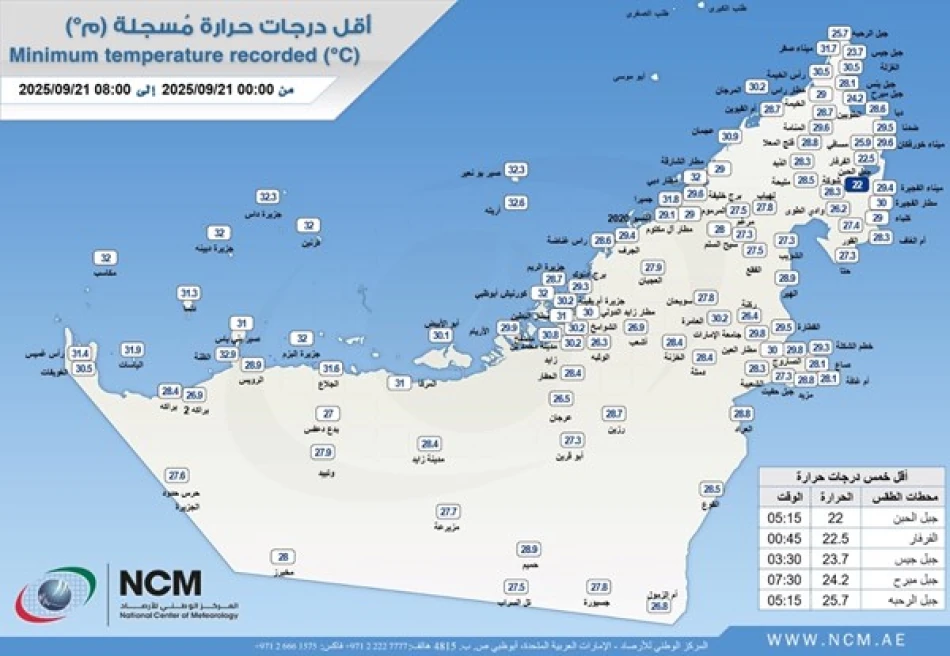
Fujairah's Jebel Al Habhan Records UAE's Lowest Temperature
UAE Records 22°C Morning Low as Winter Weather Patterns Take Hold
The United Arab Emirates experienced its coolest morning temperature of the day at 22°C (72°F) in the mountainous Fujairah region, signaling the arrival of the country's mild winter season and highlighting the diverse microclimates within this desert nation.
Mountain Regions Lead Temperature Drop
The UAE's National Center of Meteorology reported that Jabal Al-Haban in Fujairah recorded the lowest temperature at 5:15 AM local time on Sunday. This mountainous area in the eastern emirate consistently experiences cooler conditions compared to the coastal and desert regions, thanks to its elevated terrain and proximity to the Hajar Mountains.
Fujairah's geography creates natural cooling effects that distinguish it from the country's more famous metropolitan areas. While Dubai and Abu Dhabi maintain warmer temperatures due to urban heat islands and coastal humidity, the emirate's mountainous interior provides a climate refuge that attracts both residents and tourists seeking respite.
Seasonal Shift Brings Economic Opportunities
This temperature reading marks the beginning of the UAE's peak tourism and outdoor activity season, which runs from November through March. The cooler weather coincides with increased business activity, outdoor events, and the country's busiest period for international conferences and exhibitions.
For the UAE's diversified economy, these moderate temperatures signal the start of optimal conditions for construction projects, outdoor hospitality venues, and agricultural activities in the northern emirates. The construction sector, in particular, benefits significantly from cooler morning hours that allow for extended work schedules.
Regional Climate Context
The 22°C morning temperature, while mild by global standards, represents a substantial shift for a country where summer temperatures regularly exceed 45°C (113°F). This seasonal variation demonstrates the UAE's position within broader Middle Eastern weather patterns, where winter months bring relief from extreme heat.
Compared to neighboring Gulf states, the UAE's mountainous regions in Fujairah and Ras Al Khaimah offer some of the most temperate winter conditions in the Arabian Peninsula. This geographic advantage has positioned these areas as domestic tourism destinations and potential sites for climate-sensitive industries.
Looking Ahead
Weather patterns suggest this cooling trend will continue through the winter months, with potential for even lower temperatures in the coming weeks. The National Center of Meteorology's regular monitoring of these variations provides crucial data for sectors ranging from energy consumption planning to agricultural scheduling, reinforcing the UAE's commitment to weather-dependent economic optimization.
Most Viewed News

 Layla Al Mansoori
Layla Al Mansoori






